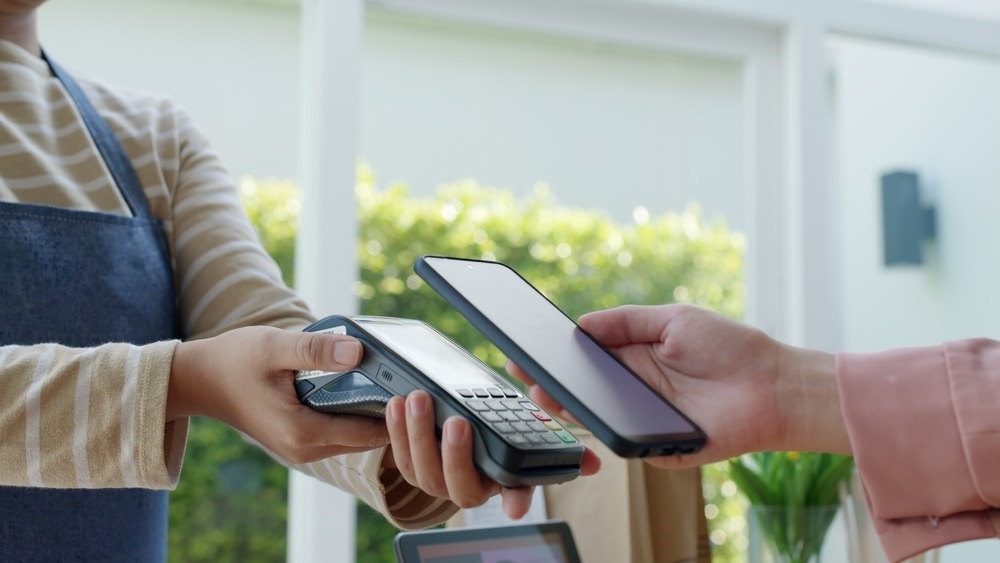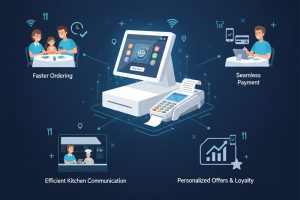In today’s rapidly evolving retail landscape, small business owners face intense competition and rising consumer expectations. One of the most powerful tools that helps entrepreneurs thrive is a modern POS terminal. Far beyond traditional cash registers, modern POS terminals offer streamlined operations, customer experiences, and valuable insights.
Here’s why investing in the right POS solution matters—and how small business POS solutions can transform your operation.
1. Sleek, User-Friendly Setup
Modern POS terminals come with touchscreens and responsive interfaces, making them easy to learn. This reduces training time and ensures smooth transactions. Plus, sleek hardware enhances your brand image—customers perceive your business as tech-savvy and professional when they see a modern POS terminal behind the counter.
2. Inventory and Sales Management
Unlike basic cash registers, modern POS terminals track inventory in real time. You can easily monitor stock levels, set reorder alerts, and identify your best‑selling items. That lets you optimize your operations and reduce costly stockouts or excess inventory. As your business scales, these intelligent tools become essential for managing multiple locations or product lines.
3. Integrated Product Catalogs and Discounts
Modern POS solutions allow you to build a comprehensive product catalog that includes pricing and special discounts. Promotions can be automatically applied at checkout, reducing errors and ensuring accurate pricing. This capability empowers small businesses to run loyalty programs, limited‑time offers, and customer incentives confidently.
4. Customer Insights and Loyalty Management
Understanding who your customers are can transform your marketing. Modern POS terminals capture purchase histories and behavior patterns. That data enables you to design personalized offers, track repeat visits, and improve customer loyalty. Whether you’re running a café, boutique, or salon, turning casual customers into regulars is infinitely easier with these powerful tools.
5. Secure Payment Processing
Security is a top priority for both businesses and consumers. Modern POS terminals support encrypted transactions and modern authentication standards, reducing risks of fraud. They often comply with PCI‑DSS requirements, ensuring data is handled safely.
With modern POS terminals in place, you can offer multiple payment methods, including EMV chip cards, NFC contactless options, and mobile wallets—all within a secure payment processing framework.
6. Faster, More Reliable Checkouts
Long lines hurt sales and frustrate customers. Modern POS terminals enable lightning-fast transactions, whether your customer is tapping a phone or swiping a card. This speed—and system reliability—improves customer satisfaction, reduces abandonments, and boosts average spend. A seamless checkout enhances your business’s reputation as efficient and customer-focused.
7. Mobility and Flexibility
Many modern POS solutions are cloud-based and run on tablets or smartphones. That means you can take payments anywhere—outdoor markets, pop-up events, or curbside pickup. Mobile POS options offer customer convenience and operational flexibility, showcasing small business POS solutions’ adaptability for today’s omnichannel landscape.
8. Streamlined Reporting and Analytics
The right POS solution generates reports on sales trends, peak hours, top-performing items, and team performance. These insights help you make smarter decisions—from staffing and pricing to marketing campaigns. Instead of relying on gut feelings, you can base every strategic move on data confidently, contributing to continuous growth.
9. Easy Integrations and Scalability
Modern POS terminals often integrate seamlessly with accounting software, e‑commerce platforms, and CRM tools. That interconnected ecosystem simplifies tasks like bookkeeping, inventory syncing, and customer follow-up. As your business grows, scalable POS systems adapt—adding registers or locations doesn’t require ripping and replacing your entire setup.
10. Cost-Efficiency and Long-Term Value
A common misconception is that small businesses don’t need advanced POS systems because of cost. In reality, the best POS for small businesses often saves money in the long run. Reduced errors, optimized inventory, loyal customers, and automation all contribute to increased revenue and lower operational expenses.
Selecting the Best POS for Small Businesses
When shopping for the best POS for small businesses, consider key criteria:
-
Ease of use: A clean interface with minimal training curve
-
Inventory control: Real-time tracking and reporting
-
Payment flexibility: EMV, NFC, and mobile wallets support
-
Security: PCI‑compliant, encrypted payment processing
-
Customer features: Loyalty programs and CRM
-
Integration potential: Accounting, online stores, marketing tools
-
Support and costs: Transparent pricing and reliable support
Cloud-based POS systems often hit all these marks, balancing affordability, features, and scalability.
Real-World Growth Impact
Consider a small café that upgraded to modern POS terminals. Within months, losses from manual entry dropped by 20%, new loyalty customers increased by 15%, and service speed improved, leading to a 10% sales bump. Similarly, a boutique using sophisticated product catalogs and integrated discounting saw per-transaction value rise 25%.
These aren’t outliers—many small businesses experience drastic improvements just by upgrading to the best POS for small businesses.
Final Thoughts
In summary, modern POS terminals are no longer optional—they’re essential growth engines for small business owners. They offer sleek, secure, and efficient transaction handling, valuable customer insights, and the flexibility to scale. With enhanced payment options, smart reporting, and seamless integration, the right small business POS solutions can future-proof your operations.
If you’re ready to streamline checkout, improve profit margins, and elevate customer experiences, investing in a modern POS terminal is a strategic move with immediate and long-lasting returns.
Frequently Asked Questions (FAQ’s)
Q1. What features should a small business look for in a POS system?
A: Look for an intuitive user interface, real-time inventory tracking, secure payment processing, reporting tools, loyalty program support, and seamless integrations with accounting or e‑commerce platforms.
Q2. How much does a modern POS terminal cost?
A: Prices range from CAD 300–1,200 for hardware; monthly software fees typically run CAD 30–100, depending on the features and support tiers you choose.
Q3. Are cloud-based POS systems secure?
A: Yes—most cloud-based systems use encryption, regular updates, PCI‑DSS compliance, and data backups, ensuring secure payment processing and protection of customer and business data.





